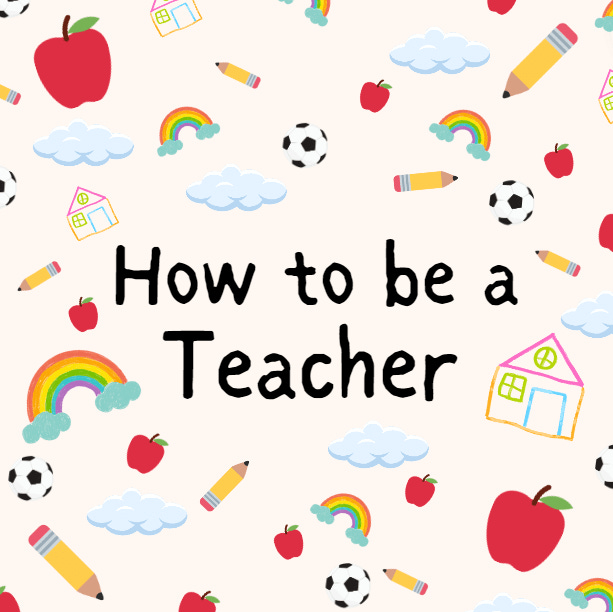How to help children create life-changing core memories
Discover how I supporting struggling readers and create life-changing core memories and build student belonging.
It is not our part to master all the tides of the world, but to do what is in us for the succour of those years wherein we are set, uprooting the evil in the fields that we know, so that those who live after may have clean earth to till. What weather they shall have is not ours to rule - Gandalf, The Return of the King (J.R.R. Tolkien)
Year 6 is a hard year.
Forget about the SATs and writing moderation.
Forget about the pre-teen behaviours.
Forget about the outrageously challenging academic expectations that I covered in my last post.
I mean saying goodbye - forever - to my students.
It’s difficult because I always miss them when they’re gone.
But the most difficult part is looking at a student leaving the safety of the primary school pond for the ocean of secondary and fearing that they’re going to get lost or swallowed up by bigger fish.
The reality is that some students leave without everything they need. The only way we teachers can maintain our sanity is to know that we gave them everything we could.
I am perpetually inspired by one of my colleagues, the teacher who works in the classroom next to me. Her relentlessly high personal standards have slowly transformed the school experience for one particular student.
A student who is moving, bit by bit, from pure hatred of school to feeling able to celebrate small wins and see meaning in them.
And I have channelled that same quest for whole-child growth.
A sense of belonging in school
I’ve written a few times about one student with EAL (English as an additional language) and my quest to help them feel like they belong. After arriving from Iraq in 2023 with no ability to speak English, I’ve had a number of successes - employing another student to help them settle into the class, sourcing specialised resources to help them develop their English and the incredible moment they tried to help their friend celebrate their achievements to their own parents in a moment of despair. These aren’t just some of my proudest moments of the school year - they’re some of my best-received newsletter posts, so I’ve linked them all for you to read later.
This week, we shared another moment that felt like a core memory.
What is a core memory?
Inspired by the Disney Pixar film ‘Inside Out’, core memories are seminal moments in a person’s life that have such an impact on them that they help shape their personality. They create a blueprint for the rest of their lives, such is their influence. They’re the big memories, and only a handful carry such gravitas.
Our EAL learner (I’ll call them King George VI for their overcoming the challenge of speaking publicly) was part of an RE lesson looking at humanism.
Because of the language difficulties, it’s really hard to teach them in lessons like this with the rest of the class so I have to be creative about how I get them involved. One part of the lesson required having a few students read out facts about humanism. The rest of the class would then take notes about what they heard.
One of the facts had quite simple vocabulary, apart from one word.
I sensed an opportunity. I showed it to King George VI and asked if he’d like to read it out (if I promised to read the word he wouldn’t know). He agreed.
Cue speaking time. I’ve highlighted the words I they read in bold.
Humanists don’t have a god and they don’t read any religious texts.
Literally a second after this, the teaching assistant (TA) he works closest with returned to the classroom from her break - she’d missed it.
No matter. Let’s do it again, I said. Ms Goldstar would love to hear it.
A wry little smile and off he went again, this time with even greater fluency having already had a go. In fact, he read the whole thing.
The best thing about teaching
And what happened next?
The whole class burst into applause.
Many of them have practically nothing to do with King George VI through the day-to-day life of school. I bet there are individuals who have got through the academic year without ever speaking to him.
Yet here they all were, celebrating his personal success - something that matters to him more than I bet any of them can understand. As a teacher, this is as good as it gets.
He can do it. He can read, which he couldn’t at the start of the year, and it’s something to be celebrated.
King George VI isn’t a shy person, but - whether through bashfulness or self-awareness or whatever else - he coyly rested his chin on his desk and kept staring at the sentence he’d read out. He didn’t know what to do with himself.
To the core
Not 15 minutes later, we had moved onto a science lesson.
While circulating the classroom as the children read a piece of text about the circulatory system, King George VI approached me with the text - a text WAY beyond him at the moment and centred on a topic he knows little about - in his hand:
“Mr Watson, can I read this to you?”
How special is that?
We sat together and had a go. The tier 3 vocabulary - circulatory, oxygenated, deoxygenated, veins, arteries - was understandably a step too far, but we got heart, lungs and blood, as well as the rest of the sentence.
I helped him with the tricky bits, he did the rest.
And, now, he won’t go home thinking ‘Mr Watson had to read words I couldn’t’. He went home thinking ‘I read out a hard sentence’. That’s memory of the day.
I look forward to his TED Talk in the future.
The hardest thing about teaching
Despite these successes, I can never escape the fact that King George VI can’t read with much independence, something that makes so much of his education inaccessible to him.
If you’ve ever taught a student with such challenges - especially at the end of their time in a school - you’ll know the feeling. It’s rotten. I’ll always wish there was more I could do.
But the reality is there are so many factors that have held him back, and none of them are to do with me:
Country of origin
Life in Iraq
Adjusting to a new country
New alphabet (as opposed to Arabic)
The fact I have 29 other students to teach
The lack of education and healthcare plan (EHCP), denying him 1-2-1 support
What he has had is a teacher who dedicates some time to helping him growing his reading ability every day, who encourages him to break out of his comfort zone and who takes time to create additional resources to either personalise his learning or help him access the same lesson as the rest of the class.
Children like King George VI need so much and, if we can give them everything we can, that’s enough.
It is not our part to master all the tides of the world, but to do what is in us for the succour of those years wherein we are set, uprooting the evil in the fields that we know, so that those who live after may have clean earth to till. What weather they shall have is not ours to rule - Gandalf, The Return of the King (J.R.R. Tolkien)
What weather he faces in secondary school is not mine to rule. I only hope we’ve helped cultivate enough skills and enough of a love of learning to help see him through the stormy times and onto brighter, sunnier days.
I’m leaving this here in case you’d like to remind yourself of that, too.
Help!
Yesterday, I sent out an email to you asking whether you’ve considered writing a book. I’m doing something work with a business that supports teacher writers - and I’m halfway through a kid’s novel myself - and I’m fascinated to know what you find challenging about it.
If, like me, you’re passionate about writing and teaching, share your thoughts in the 2-question survey by clicking here. Shouldn’t take you even a minute.
Thanks in advance. I really mean that.






Jack, the small moments you intentionally create for your students are the ones they will remember for a lifetime. It warms my heart to read how much you care for your students!
Such an inspiring post, Jack! I'm sure this pupil will always remember you and how supportive you were to them.